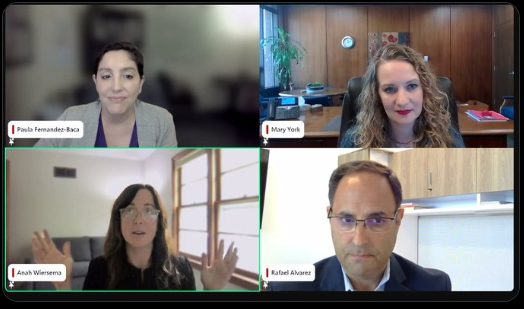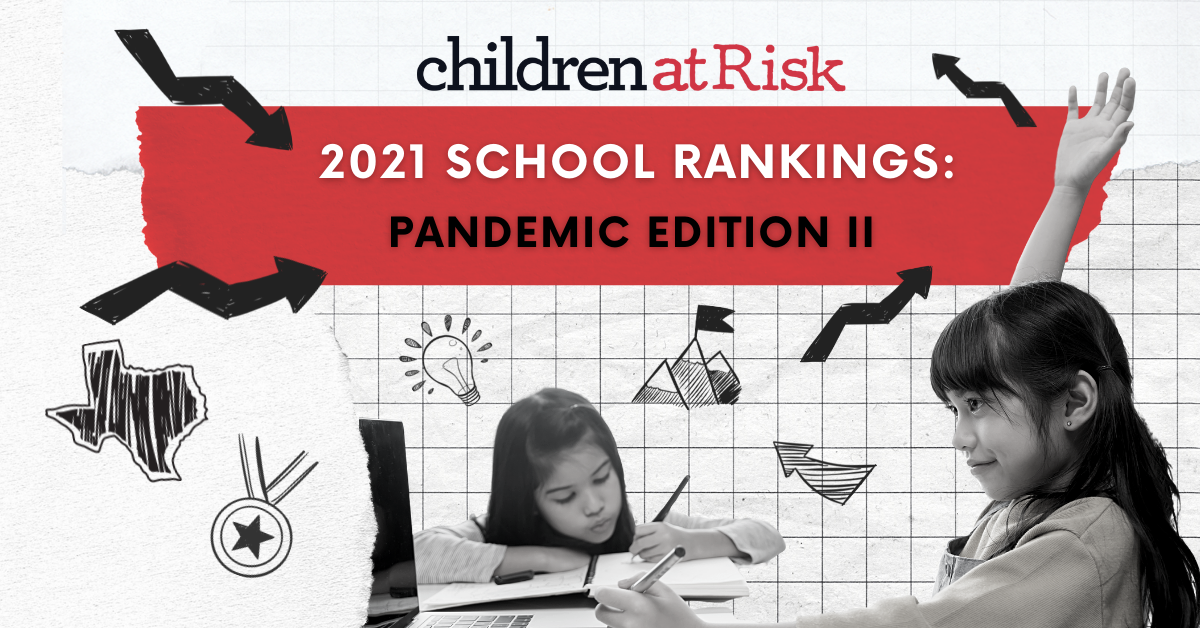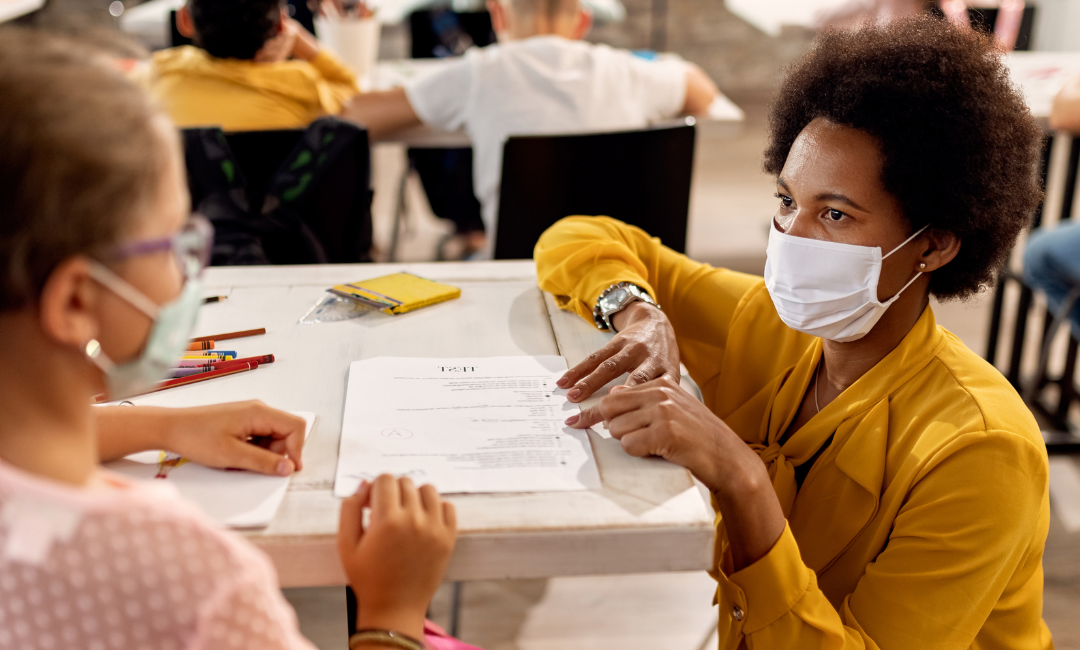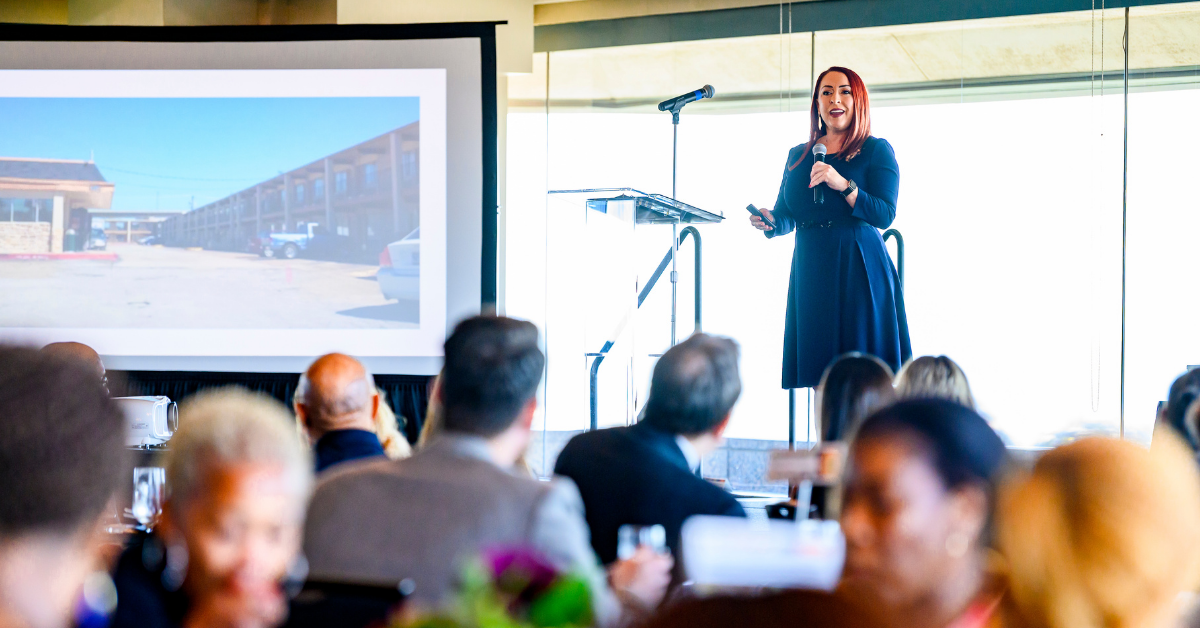
The Chutes & Ladders of Learning: C@R's Annual Education Summit Recap
On Friday, June 6, CHILDREN AT RISK hosted the 2025 Education Summit: The Chutes and Ladders of Learning, bringing together educators, leaders, and advocates to examine the opportunities and challenges shaping Texas education.
On Friday, June 6, CHILDREN AT RISK hosted the 2025 Education Summit: The Chutes and Ladders of Learning, bringing together educators, leaders, and advocates to examine the opportunities and challenges shaping Texas education. Generously sponsored by Shell and supported by H-E-B, the summit explored Texas’ evolving educational landscape through expert panels on literacy, mathematics achievement, and the critical link between education and career success.
This summit was moderated by Diana Del Pilar, Chief of Academic Performance at CHILDREN AT RISK, who drew on her deep expertise in education and coaching to guide the conversation and highlight key insights from guest experts. To open the conversation, Dr. Bob Sanborn, President & CEO of CHILDREN AT RISK, offered opening remarks that connected both to the subject matter of the event, as well as the press conference directly preceding the event which focused on policy opportunities at the close of the 89th Texas Legislature.
Dr. Erin Baumgartner, Director of the Houston Education Research Consortium at Rice University’s Kinder Institute for Urban Research, opened the summit with a data-driven keynote that provided a clear snapshot of Texas’ educational landscape. She examined demographic shifts, student achievement trends, and resource allocation, emphasizing the importance of early childhood education, the needs of 1.3 million emergent bilingual students, and postsecondary readiness.
“Around 80% of school districts are in rural style areas. What students need in urban centers vs rural areas can vary, a lot,” said Dr. Baumgartner. “Just as the composition of the state is changing over time, so is the composition of our students.”


Next, the conversation moved into a panel discussion on what it takes to help students “Climb the Literacy Ladder,” moderated by Dr. Susan Lambert, Chief Academic Officer, Elementary Humanities, Amplify. This panel explored key challenges and opportunities within Texas literacy education. Leaning into evidence-based strategies, expert guests explored what it would take to close achievement gaps and build strong, inclusive literacy programs that support all students.

“What if Texas became the most literate state in the country? It would transform everything,” said Dr. Delilah Gonzales, Executive Director, Emerging Learners Literacy Foundation, National Literacy Institute; Curriculum Developer/Trainer, and Texas Southern University Professor of Early Childhood Education.
“Our children need to be critical thinkers with character. AI, if used precisely and intentionally, is important. But we need to make sure our students don’t forget to think. We need to put boundaries around that tool,” said Dr. Tracey Weeden, Past President and Ambassador, Neuhaus Education Center.
“We are great at talking about high standards, but when working with children at risk, we need to remember Maslow’s hierarchy. If a student is hungry or scared, they can’t think,” Dr. Jenny McCormack Walker, Executive Director, Literacy Texas, said. She emphasized how urgent it is to ensure students’ basic needs are met.


Following this robust conversation, summit attendees heard directly from an education leader himself in a pre-recorded interview featuring Mike Morath, Commissioner of Education with the Texas Education Agency (TEA). In this, he explored themes of high standards, academic excellence, and tailoring academic supports for all students with Dr. Bob Sanborn, President & CEO, CHILDREN AT RISK.
“There is really nothing more difficult than the job of educating not just one at a time, but 20 or 100 at a time. Nothing about this work is simple,” Commissioner Morath said.
He took time to talk about how not every student receives the same learning support or opportunities when not in the classroom, and that some students do need more rigorous support to stay on track with their peers. “Is content being taught in a way that grows [students] from a resiliency standpoint as well as a mastery standpoint?” Morath said.
Taking it back to a lived experience, the summit then transitioned to the second panel discussion of the day moderated by Jennifer Mascheck, Director of Academic Performance Coaches, Instructional and Leadership; Texas A+ Challenge. Featuring national expertise, “Calculating the Climb” focused on what it would take to build strong foundations and expand opportunities for students to pursue to advanced coursework.
Exploring the socialization impact on academic math accomplishments, expert panelists took a moment to acknowledge that every child is born with an innate sense of numbers. “Children are born with an innate sense of quantity – they know when they got something less or smaller than something else,” said Brandi Simpson, President, Texas Association of Supervisors of Mathematics; Lecturer, UTSA. She emphasized that modeling should be used as a method for students to move beyond procedures and see math instead as a tool for interacting in the world.
“I feel that math is the only content area where someone can say “I’m not good at math” – We have to change that marketing strategy. That content area is used and manipulated throughout every action, all the time,” said Latrenda Knighten, President, The National Council of Teachers of Mathematics.
“In my field of early childhood education, it wasn’t the students who carried the narrative that “I’m bad at math,” it was the teachers.” said Dr. Jie-Qi Chen, Barbara T. Bowman Professor of Early Childhood Education and Founder of the Early Math Collaborative at Erikson Institute, Chicago. “When teachers feel unsure or uncomfortable, they can unintentionally pass on the very narrative we’re trying to disrupt.”


This robust conversation looked at existing challenges while also sharing strategies to enhance engagement, support early talent identification, and ensure equitable pathways from basic math to higher-level opportunities.
Bringing the conversation full circle, the third and last panel of the day connected academic achievement to workforce outcomes. Paula Fernandez-Baca, Executive Director of College & Career Counseling & Advising, “The Winner’s Square,” addressed the vital intersection of academic preparation and workforce readiness in Texas’s evolving economy. Distinguished panelists brought lived experience representing both education and industry perspectives. This discussion focused on developing comprehensive pathways that prepare students for both immediate career entry and continued academic advancement, noting that these largely already exist and merely need to be expanded.
“We’re focusing on what we can do to expand internship opportunities, not only in higher education but in high schools,” said Mary York, Director of Workforce Development, The Texas Workforce Commission. “If we can continue to see success in current models, we have something to bring to the Texas Legislature and say ‘hey, this works.”
“The outcome data of students who go through internship opportunities is off the charts,” said Rafael Alvarez, Senior Vice President of Regional Workforce Development, Greater Houston Partnership, Houston ISD and Founder of Genysis Works. “We need to use AI to harness opportunities for students and connect them with their dream careers, and the pathways to get there.”
Panelists explored innovative approaches to career and technical education, the integration of essential soft skills into academic programs, and the development of sustainable industry-education partnerships. Experts took a moment to acknowledge the changing nature of career readiness, and emphasized the soft skills needed for students to be competitive in a rapidly evolving workforce.
“How we work is fundamentally changing, and it’s changing faster and faster,” said Anah Wiersema, Director of Program Strategy, Texas School Empowerment Network. “You’re not born adaptable; you learn that skill… And that is the biggest skill our students need to learn.”
“No student has ever failed because they don’t have technical skills. They failed because they didn’t have the soft, the durable, skills,” said Alvarez, following Wiserma’s statements. “How do we teach these, and let students experience durable skills in K-12?”
Closing out the event on a powerful note, the panelists agreed that early exposure and opportunities to ‘try out careers’ is critical. They also acknowledged that, sometimes the barriers to success aren’t the lack of opportunities, it’s the lack of awareness of an opportunity available to a student.
Click here to watch the summit recording, or explore the highlights here from C@R’s live posting on X. Keep diving into this information with the press conference on the alignment of legislation, education, and workforce readiness. Continue learning with CHILDREN AT RISK – Register for our next upcoming event, The 89th Legislative Debrief, on July 10th.


Watch the summit recording on Youtube!
READ MORE FROM C@R

CHILDREN AT RISK Receives $25,000 Donation from Amazon
Media Contact: Rashena Flagg, 713.301.4577 Amazon has generously provided Children at Risk with $25,000 to support the statewide collaborative Texas Family Leadership Council (TXFLC). The TXFLC was created out of the statewide need for accessible information,...

CHILDREN AT RISK and Texas Family Leadership Council Host Second Annual State of Black Children in Texas
On Thursday, February 24, the Texas Family Leadership Council and CHILDREN AT RISK hosted the second annual State of Black Children summit. The summit, sponsored by Amazon and Amerigroup, explored the challenges Black children face growing up in Texas and how to best...

Beyond the Dream, TREC Hosts First Racial Equity Summit
On Thursday, January 27, the Texas Family Leadership Council and the Texas Racial Equity Collaborative (TREC) partnered with Fidelity to host their first annual racial equity summit, Beyond the Dream: From Words to Action. The summit included panels of legislators and...

C@R Celebrates 10 Years of Service in North Texas.
C@R North Texas leaders past, present, and future. Pictured Left to Right: Chris Wallace, Dr. Margo McClinton Stoglin, Timmy Newsome, and Genai Walker-Macklin. On December 4th, 2021, CHILDREN AT RISK (C@R) celebrated ten years of service in the North Texas region in...

Molto Grazie! Una Notte in Italia Gala Benefiting C@R Breaks Records.
Clayton Katz, on the Una Notte in Italia runway. PC Daniel OrtizgThe annual Una Notte in Italia "celebrity" men's fashion show is always one of the most anticipated galas of the Fall season. This year was no different when it sold out 8 weeks before invitations went...

Which Texas Schools Were Most Resilient?
For more than a decade, CHILDREN AT RISK (C@R) has ranked and graded Texas public schools to help parents, educators, and community members understand how schools in their community are performing, and to spark dialogue on the quality of public education across Texas....

C@R Hosts HISD Trustee Candidate Forum
Elections for Trustees for the Houston Independent School District Board are this November! On October 21st, CHILDREN AT RISK hosted a virtual candidate forum. Watch the recording linked below to hear how they plan to address educational inequity, the challenges for...

Attendance & Learning in the time of COVID-19
IN THE TIME OF COVID: Attendance & LearningResearch shows that students who attend school regularly earn higher grades are more likely to graduate and are better prepared for college. The pandemic made it difficult for many students to attend and engage in school,...

Special Education in the time of COVID-19
IN THE TIME OF COVID: Special EducationSpecial education policies help ensure students with disabilities are placed in the most appropriate environments with the accommodations necessary to meet their learning needs. How has COVID-19 affected special education?For...

Student Mental Health in the time of COVID-19
IN THE TIME OF COVID: Student Mental HealthMental health is an important issue that affects students every day. Having access to mental health services can reduce the stress caused by difficult situations and improve academic performance. Post-pandemic it is more...

In the Time of COVID: Student Rights and School Policies
IN THE TIME OF COVID: School Policies & Student RightsCOVID-19 changed our public education landscape overnight. Thousands of Texas schools and nearly 5.5 million students had to adapt to new policies and health guidelines. As schools grapple with COVID's impact,...

School Discipline
IN THE TIME OF COVID: School DisciplineSchool discipline policies are guidelines that outline the rules of a school. They're important because they help to keep order in schools and to protect students from violence or abuse by other students, teachers, or...

TREC Hosts Racial Equity Roundtable on Going Back to School under COVID-19
On Wednesday, September 29, CHILDREN AT RISK and the Texas Racial Equity Collaborative launched the first in a series of monthly roundtables centered on racial equity first These monthly Racial Equity Rapid Roundtables will gather community leaders, child advocates,...

C@R Honors Child Advocates & Anti-Trafficking Leaders at North Texas Luncheon
On September 23rd, 2021, CHILDREN AT RISK celebrated North Texas and honored local leaders working to end human trafficking and child exploitation with our first ever Speaking Up + Speaking Out Luncheon. North Texas community leaders, advocates, and trafficking...
